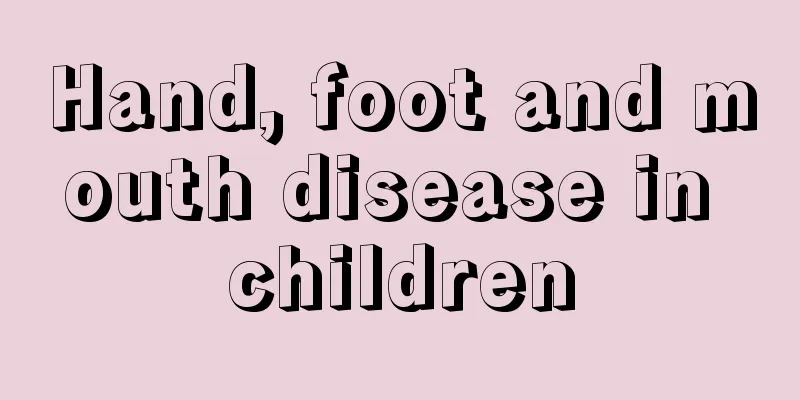How often should vaccinations be given?

|
When a baby is born, he or she will definitely need to receive some vaccines, which are called vaccinations. As the name suggests, the main function of vaccines is to prevent babies from contracting some epidemic diseases, so it is still very beneficial to babies. However, vaccinations cannot be given continuously. Many parents have no experience and often miss the best time for vaccination. So, how often should vaccinations be given? How often should babies be vaccinated? Generally, vaccinations need to be spaced one month apart. If a baby has a cold or cough, vaccination cannot be given and needs to be postponed. Remember the time each time you get a vaccination. Five must-have vaccines for babies 1. BCG Diseases to prevent: Tuberculosis. Vaccination time: BCG vaccination can be carried out within 24 hours of birth, and the vaccination should be completed before 1 year old at the latest. 2. Hepatitis B vaccine Diseases to prevent: Hepatitis B. Vaccination time: One dose of hepatitis B vaccine should be given intramuscularly within 24 hours after birth. Another dose should be given one month later, and another dose should be given six months later, for a total of three injections, called the 0, 1, 6 schedule. 3. Polio vaccine (sugar pill) Diseases to prevent: polio. Vaccination time: Take orally once at 2 months, 3 months, and 4 months after the baby is born. Reinforce it once at 18 months and 4 years old. 4. DPT vaccine Disease prevention: DPT is the abbreviation of pertussis, diphtheria and tetanus. Vaccination time: The first vaccination should be given when the baby is 3, 4, and 5 months old. Each vaccination should be given 4 weeks apart, for a total of 3 injections. The booster vaccination should be given when the baby is 18-24 months old. 5. Measles vaccine Diseases to prevent: measles. Vaccination time: The first shot is given at 8 months after birth, and the next shot is given at 18-24 months of age. After the vaccination, the child must rest at the vaccination site for 30 minutes to observe whether there are any abnormal reactions such as allergies. The child must not leave early without permission. This is a kind of protection for children, but it is easily overlooked by parents. After returning home, you should pay attention to whether your child has a fever. There should be at least one month interval between two vaccinations for the baby. The above five vaccines are required for the baby. After the vaccination, the baby needs to be observed and rest for half an hour on the spot. After the baby gets vaccinated, he should make sure to drink plenty of water, get enough rest, try not to go out for fun, and don’t take a bath on the same day to avoid infection at the vaccination site. |
<<: How to wash off baby adhesive plaster?
>>: What should I do if my baby has diarrhea after vaccination?
Recommend
What causes baby's palms to sweat?
Today's babies are the sweethearts of the fam...
What to do if baby has small red bumps on his back
When babies first come into this world, they need...
What is the reason why children don’t gain weight?
Adults are afraid of gaining weight, but if child...
What is the reason for six fingers in newborns?
Newborns with six fingers are actually a phenomen...
Symptoms and treatment of colic in children_Treatment of colic in newborns
Because children have relatively low resistance, ...
If your child has these symptoms, it may be ADHD
Children cannot communicate well due to their you...
Can children get cataracts?
Cataract patients are generally elderly people, b...
Are gloves okay for newborns?
Newborn babies are both cute and delicate. They a...
What to do if a child has a minor burn?
Scalding is everywhere. Many children often do no...
Expert guidance: 10 nutritional tips for a healthy baby
Every mother hopes that her baby is healthy, but ...
How to care for babies born by caesarean section
According to the latest data, the caesarean secti...
Factors that affect children's nutrient absorption, the hazards of malnutrition in children, and dietary combinations for children's nutrition
The healthiest growth of children is the greatest...
What foods are good for children's bowel movements?
Children have many problems in their diet, and be...
What grains are good for children?
Whole grains are a type of relatively nutritious ...
What should I do if my baby is mute?
The baby's body functions are not yet fully d...









